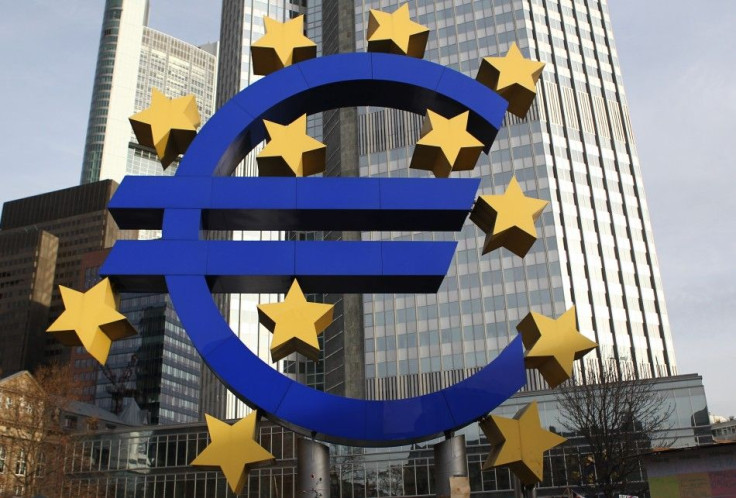Euro Zone Lagging Behind In Shaky G7 Recovery: OECD

(Reuters) - Euro zone nations are falling far behind the United States and Canada as a fragile recovery takes root in advanced economies, the OECD said on Thursday, advising central banks to keep easy money flowing so the rebound does not prove short-lived.
The Paris-based Organisation for Economic Cooperation and Development forecast that the Group of Seven advanced economies were on course for average annualized growth of 1.9 percent in both the first and second quarters although rates varied widely.
There is a recovery which is firming with respect to past numbers. But it is clearly coming at different speeds, with North America and the United States growing faster and the euro area still in a weak spot, OECD chief economist Pier Carlo Padoan told journalists.
An improving U.S. labor market would help the world's biggest economy grow 2.9 percent in the first quarter on the same basis, and 2.8 percent in the second quarter, the OECD said.
Its latest predictions were contained in a brief report in which it gives quarterly estimates for a handful of countries ahead of a fuller publication in May.
As unemployment fell in the United States, confidence was firming, particularly among households, while easy financial conditions were helping them rebuild their strained budgets, the OECD said.
Monetary policy needs to be supportive in the medium term to allow this process to continue, Padoan said.
^^^^^^^^^^^^^^^^^^^^^^^^^^^^^^^^^^^^^^^^^^^^^^^^^^^^^^^^^
Graphic of OECD estimates: link.reuters.com/jyd47s
^^^^^^^^^^^^^^^^^^^^^^^^^^^^^^^^^^^^^^^^^^^^^^^^^^^^^^^^^
EURO ZONE STILL UNDER THREAT
With the euro zone creeping out of a sovereign debt crisis, the recovery would be weakest there, with the economies of France and Italy in contraction in the first quarter and Germany eking out growth of only 0.1 percent.
Grappling with weak industrial production and fragile household confidence, Italy would be mired in recession as its economy contracted an annualized 1.6 percent in the first quarter and 0.1 percent in the second quarter, the organisation estimated.
This is going to be a delicate period over the next quarters, Padoan said, noting that Italian and Spanish bond yields had begun creeping higher again. We have to be careful and ready to support the situation.
OECD Secretary General Angel Gurria called on Tuesday for euro zone nations to ramp up the size of their rescue fund, judging that the debt crisis was not over with banks still weak, debt still rising and fiscal targets far from assured.
Outside the euro zone, Britain's economy was seen contracting an annualized 0.4 percent in the first quarter before posting growth of 0.5 percent in the following quarter.
In light of the still shaky nature of the recovery, the OECD said that central banks should be prepared to keep interest rates low and maintain other crisis measures for a considerable time to come.
In the euro area one might even argue there is some policy space in the interest rate which could be used given inflation is not a source of concern if activity slows down, Padoan said.
In the UK one might argue in favor of additional easing, Padoan said, adding that the outlook was still too uncertain for most countries to begin setting a time frame for winding down crisis measures.
With their balance sheets loaded up to record levels, the European Central Bank and the U.S. Federal Reserve are facing growing calls to consider unwinding the unconventional measures they have adopted in the last three years to stave off financial meltdowns.
Among risks to the overall outlook, the OECD estimated surging oil prices, which have risen 15 percent since the start of the year, would add a quarter of a percentage point to inflation in developed countries and knock 0.1-0.2 percent off growth on average over the next year.
--
© Copyright Thomson Reuters 2024. All rights reserved.





















